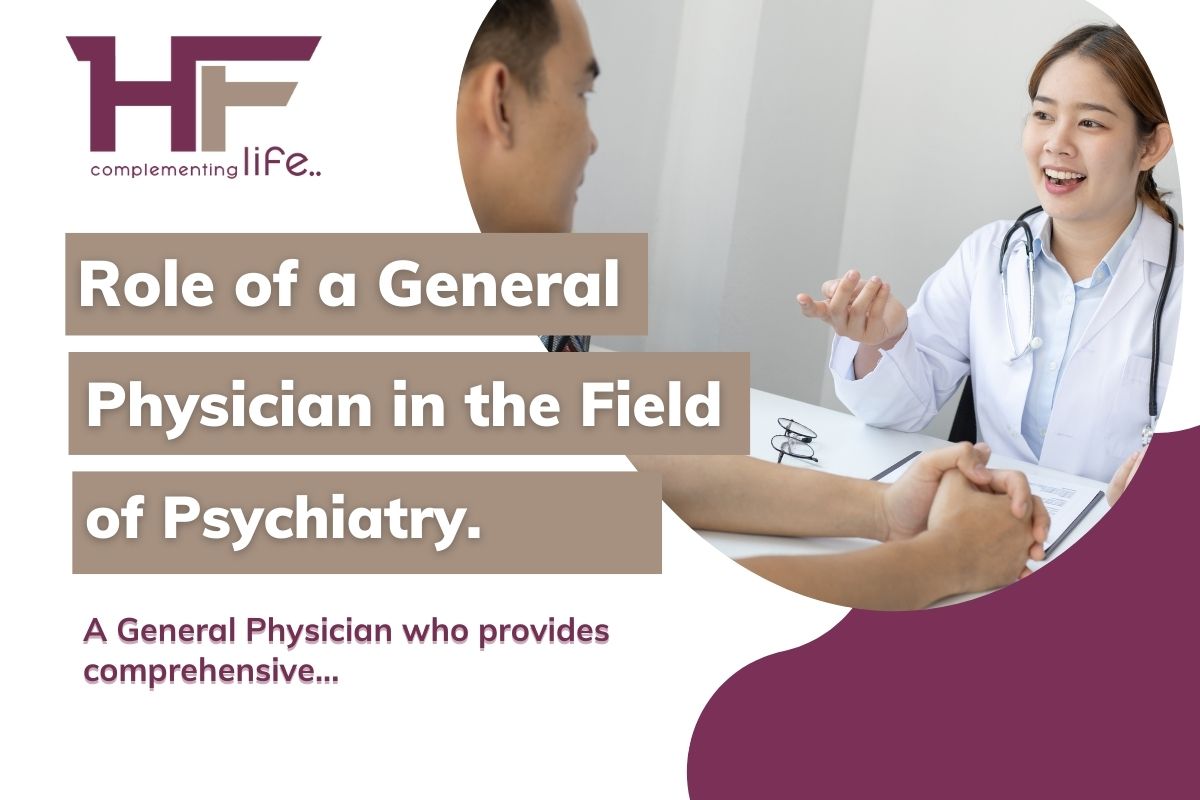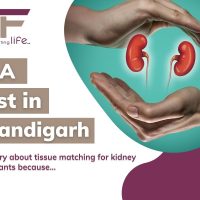The role of a general physician in managing psychiatric disorders is to provide initial assessment and diagnosis and to determine the appropriate course of treatment. This may involve referral to a psychiatrist or other mental health professional for more specialized care, or it may involve providing treatment directly, such as prescribing medication or providing therapy.
- General physicians are trained to diagnose and treat a range of mental health conditions.
- They play a key role in identifying and managing psychiatric disorders.
- They work closely with other healthcare professionals to provide comprehensive care to patients.
- General physicians can prescribe medication and provide therapy to manage psychiatric disorders.
- They also educate patients and their families about the condition and coping strategies.
Initial assessment: The general physician conducts a thorough physical and mental health evaluation to determine the presence and severity of the psychiatric disorder. This may include taking a medical history, conducting a mental status examination, and ordering laboratory tests to rule out other potential causes of symptoms.
Diagnosis: Based on the findings of the initial assessment, the physician makes a diagnosis of the psychiatric disorder and discusses the diagnosis with the patient.
Treatment plan: The physician develops a treatment plan that may include a combination of medications, therapy, and other interventions to address the symptoms and underlying causes of the disorder. The plan is tailored to the individual needs of the patient and may be revised as needed over time.
Medication management: The physician prescribes and monitors medications to treat the psychiatric disorder. This may include regular check-ins with the patient to assess their response to treatment and make any necessary adjustments.
Therapy: The physician may refer the patient to a mental health professional for therapy to address underlying psychological and emotional issues related to the disorder.
Follow-up care: The physician monitors the patient’s progress and provides ongoing support and guidance to help them manage their disorder and achieve their treatment goals. This may include regular check-ins, medication adjustments, and referrals to other healthcare providers as needed.
CContents
General physician manages psychiatric disorders with personalized care and treatment
A general physician can effectively manage psychiatric disorders by taking a comprehensive approach to care. This includes conducting a thorough physical and mental health evaluation to identify any underlying medical conditions that may be contributing to the disorder. The physician may then prescribe appropriate medications or refer the patient to a mental health specialist for additional care and support. In addition, the physician may recommend lifestyle changes, such as exercise and stress management techniques, to help the patient manage their symptoms and improve overall health and well-being. By providing personalized care and treatment, a general physician can help individuals with psychiatric disorders lead healthy and fulfilling lives.
A general physician uses medication and therapy to manage psychiatric disorders
A general physician can manage psychiatric disorders by using a combination of medication and therapy, such as cognitive behavioral therapy or interpersonal therapy. It is important for the physician to collaborate with mental health professionals, such as psychiatrists or psychologists, to ensure the most effective treatment plan for the patient.
Psychiatric symptoms: how a general physician can help
As a general physician, one way to manage psychiatric symptoms is by providing support and guidance to the patient. This can include listening to the patient’s concerns, conducting a physical examination, and performing diagnostic tests to determine the underlying cause of the symptoms.
Managing psychiatric symptoms with medication
In some cases, a general physician may prescribe medication to help manage psychiatric symptoms. This could include antidepressants, antipsychotics, or other medications that are specifically designed to treat mental health conditions. The physician will carefully evaluate the patient and determine the most appropriate medication and dosage.
Referring patients to a mental health specialist
In some cases, a general physician may determine that a patient’s psychiatric symptoms require specialized treatment from a mental health specialist. In these situations, the physician can refer the patient to a psychiatrist, psychologist, or another mental health professional who can provide more focused care.
Overall, managing psychiatric symptoms requires a combination of listening, evaluation, and appropriate treatment. As a general physician, it is important to provide support and guidance to the patient and to refer them to specialized care when necessary.
Collaborating for Better Mental Health Care
As mental health issues continue to rise, it is crucial for healthcare providers to work together to provide comprehensive care for patients. General physicians, who are trained to diagnose and treat a wide range of medical conditions, can play a crucial role in the field of psychiatry by collaborating with mental health professionals.
By working together, general physicians and psychiatrists can provide a holistic approach to treating patients with mental health issues. General physicians can provide a physical examination and diagnose any underlying medical conditions that may be contributing to the patient’s mental health symptoms. They can also provide medication management and monitor the patient’s physical health while the psychiatrist focuses on the mental health treatment plan.
Additionally, general physicians can serve as an important point of contact for patients who may be hesitant to seek mental health treatment. By providing a familiar and non-judgmental face, general physicians can help patients feel more comfortable discussing their mental health concerns and can refer them to a psychiatrist for further evaluation and treatment.
Overall, the collaboration between general physicians and psychiatrists can help improve the quality of care for patients with mental health issues and provide better outcomes.
Important Role of a general physician fulfilling in the field of psychiatry.
A general physician plays an important role in the field of psychiatry by providing initial evaluation and diagnosis of mental health conditions, determining the appropriate treatment plan, and coordinating care with other mental health specialists. They also provide ongoing support and monitoring of the patient’s mental health status and make necessary adjustments to the treatment plan. In addition, they may provide education and support to the patient and their family on coping strategies and mental health management. They also play a key role in detecting and addressing any potential physical health issues that may be contributing to or exacerbating mental health symptoms.
Conclusion
In conclusion, managing psychiatric symptoms can be complex, but with a combination of careful evaluation, referral to a specialist, medication, and support and education, a general physician can effectively manage these symptoms and help the patient lead a healthier, more fulfilling life. You can call for More information at 77400-33771
If you’re a doctor or have knowledge related to the Healthcare field, You can share us at [email protected]











Comments